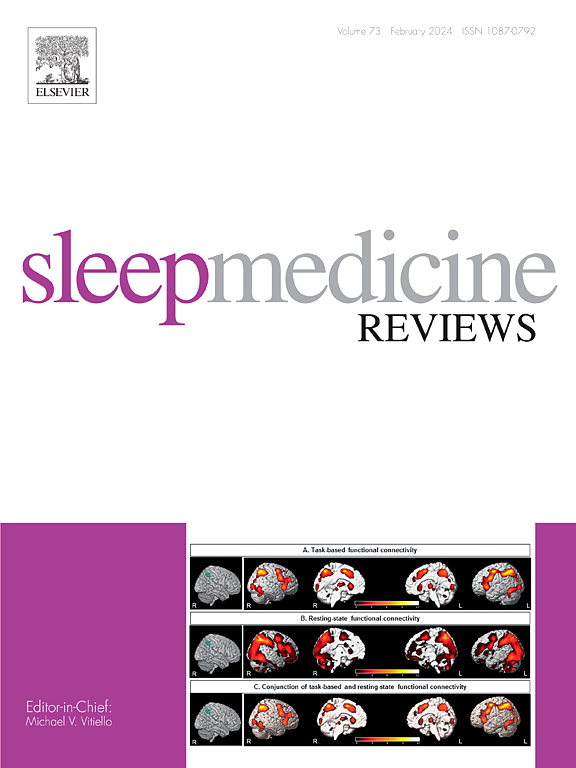昼夜节律免疫代谢:洞察癌症靶向治疗的未来
IF 11.2
1区 医学
Q1 CLINICAL NEUROLOGY
引用次数: 0
摘要
昼夜节律发出信息,调节生物的睡眠-觉醒周期,从而调节各种生物活动。众所周知,睡眠-觉醒周期的改变会影响宿主的新陈代谢,并显著降低宿主的免疫力。昼夜节律相关基因的失调对各种恶性肿瘤至关重要。癌症的特征之一是新陈代谢改变,其影响波及周围的微环境。在此,我们回顾了将昼夜节律免疫代谢轴与癌症联系起来的新兴文献。小代谢物是各种代谢途径的产物,通常在癌症中受到干扰。调节昼夜节律的基因也会调节宿主的新陈代谢,并控制肿瘤微环境中的代谢物含量。免疫细胞渗入肿瘤部位对发挥抗癌功能至关重要,而代谢物含量的改变会影响免疫细胞向肿瘤部位的迁移。肿瘤微环境中受损的免疫反应有助于癌细胞增殖和免疫逃避,从而导致转移。昼夜节律在这些过程中的作用在很大程度上被忽视了,需要在寻找抗癌生长和扩散的靶点时重新加以关注。精准医疗方法需要针对癌症的昼夜节律免疫代谢。本文章由计算机程序翻译,如有差异,请以英文原文为准。

Circadian immunometabolism: A future insight for targeted therapy in cancer
Circadian rhythms send messages to regulate the sleep-wake cycle in living beings, which, regulate various biological activities. It is well known that altered sleep-wake cycles affect host metabolism and significantly deregulate the host immunity. The dysregulation of circadian-related genes is critical for various malignancies. One of the hallmarks of cancer is altered metabolism, the effects of which spill into surrounding microenvironments. Here, we review the emerging literature linking the circadian immunometabolic axis to cancer. Small metabolites are the products of various metabolic pathways, that are usually perturbed in cancer. Genes that regulate circadian rhythms also regulate host metabolism and control metabolite content in the tumor microenvironment. Immune cell infiltration into the tumor site is critical to perform anticancer functions, and altered metabolite content affects their trafficking to the tumor site. A compromised immune response in the tumor microenvironment aids cancer cell proliferation and immune evasion, resulting in metastases. The role of circadian rhythms in these processes is largely overlooked and demands renewed attention in the search for targets against cancer growth and spread. The precision medicine approach requires targeting the circadian immune metabolism in cancer.
求助全文
通过发布文献求助,成功后即可免费获取论文全文。
去求助
来源期刊

Sleep Medicine Reviews
医学-临床神经学
CiteScore
20.10
自引率
3.80%
发文量
107
期刊介绍:
Sleep Medicine Reviews offers global coverage of sleep disorders, exploring their origins, diagnosis, treatment, and implications for related conditions at both individual and public health levels.
Articles comprehensively review clinical information from peer-reviewed journals across various disciplines in sleep medicine, encompassing pulmonology, psychiatry, psychology, physiology, otolaryngology, pediatrics, geriatrics, cardiology, dentistry, nursing, neurology, and general medicine.
The journal features narrative reviews, systematic reviews, and editorials addressing areas of controversy, debate, and future research within the field.
 求助内容:
求助内容: 应助结果提醒方式:
应助结果提醒方式:


